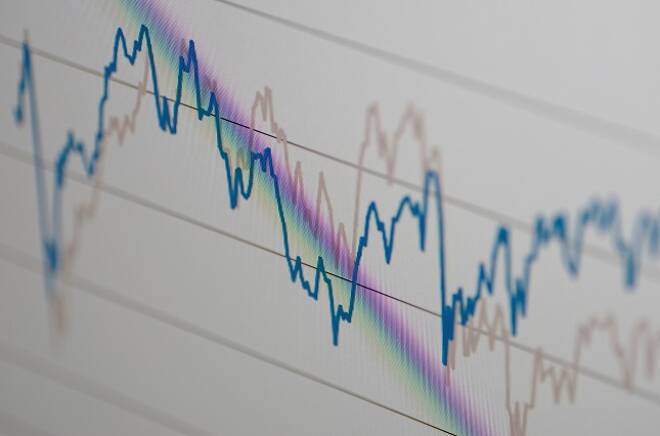Advertisement
Advertisement
US Stock Market Overview – Stocks Drop on Global Growth Scare
By:
A flattening yield curve is a cautionary sign
Global growth scares weighed on stock prices. The Dow Industrial dropped more than 400-points. The Nasdaq was the worst performing of the major averages dropping 2.5%. The Russel 2000 which reflects domestic values in the United States was the leader on the downside, dropping nearly 3.23%. All three major indices were in the red on Friday. The markets opened lower as yields tumbled following weaker than expected PMI data released in Europe on Friday. This follows Wednesday downgrade of GDP by the Federal Reserve. The slowing global growth story was front and center today as the markets were due for a pullback.
Trump was on the tape today saying that growth in the US would be at 4% if the Fed had not increased interest rates in 2018. The US yield curve moved lower pushing the 10-year yield and the 2-year yield together which is a sign that a recession could be on the way. Most sectors were lower on Friday, as the markets were led down by energy and materials. Utilities and consumer staples bucked the trend as intereset rates buoyed defensive names. European data was softer than expected which put pressure on European shares which spilled over into the US. Even Apple shares declined on Friday, pulling back to the psychologically important 200-day moving average.
Trump Erked at Interest Rate Levels
President Trump on Friday said “If we didn’t have somebody raising interest rates and do quantitative tightening we would have been over 4% instead of at 3.1%” in terms of economic growth. Trump’s comments come after the Federal Reserve kept interest-rates steady on Wednesday and lowered its growth forecast to 2.1% in 2019. The Fed also sees not rate increases for the balance of 2019. Trump was critical of the Fed for raising rates four times last year.
European PMI Data Spooks the Market
Before the opening bell stocks were on the defensive and the futures were pointing to a much lower open. This came on the heels of softer than expected European economic data. The German initial purchasing managers index, dropped to 44.7 from 47.6, which reflects that Germany could experience a significant contraction. The compositve declined to 51.5 from 52.8, which is still in expansion territory. The services sector is holding up the German economy. The French manufacturing PMI declined to 49.8 from 51.5. The EU PMI also fell further into contraction territory dropping to 47.6 from 49.3.
The worse than expected data weighed on both Germany yields and the Euro. The benchmark bund German yield dropped into negative territory, for the first time since 2016. A negative yield in Europes largest economy points to a contraction and likely additional easing by the ECB.
About the Author
David Beckerauthor
David Becker focuses his attention on various consulting and portfolio management activities at Fortuity LLC, where he currently provides oversight for a multimillion-dollar portfolio consisting of commodities, debt, equities, real estate, and more.
Advertisement
